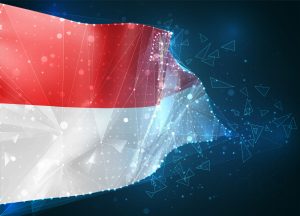Yesterday, Reuters published an exclusive report revealing that Indonesia’s government is preparing laws that will increase its control over the internet and social media platforms, building on oppressive rules that came into effect in late 2020.
Citing numerous government and industry sources with knowledge of the issue, Reuters journalists Fanny Potkin and Stefanno Sulaiman reported that under the new rules, social media and internet platforms including Google, Facebook, Twitter, YouTube, and TikTok will be required to remove content deemed unlawful at the request of any government agency. Those deemed “urgent” will have to be taken down within four hours; otherwise, the request will have to be met within 24 hours.
The new rules, which the news agency claims are among the harshest social media controls in the world outside countries (like China) that block them outright, are being drafted by Indonesia’s finance and communications ministries, and will be brought in from June. According to the report, “urgent” government requests would include content perceived as sensitive in areas such as “security, terrorism and public order, child protection, and pornography.”
The government will also be granted the power to fine internet and social media platforms that fail to comply with the rules. Platforms that repeatedly fail to comply with government requests could be blocked in Indonesia; their staff could also face criminal sanctions.
The proposed new rules will extends Indonesia’s existing internet controls. Ministerial Regulation 5 (MR5), which came into force in November 2020, requires all private digital services and platforms to register with the Ministry of Communication and Information Technology and agree to provide access to their systems and data as specified in the regulation.
Under MR5, these companies are required to “ensure” that their platform does not facilitate the distribution of “prohibited content,” which is defined in similarly broad terms to the new legislation reported by Reuters. In this case, too, failure to comply can lead to platforms being blocked. In a statement last year, the advocacy group Human Rights Watch described MR5 as “deeply problematic, granting government authorities overly broad powers to regulate online content, access user data, and penalize companies that fail to comply.”
The new measures seem to sharpen the requirements for any digital platform that is present within Indonesia, laying down specific rules for how content should be removed and the punishments for failing to comply.
Indonesia remains one of the largest internet markets in the world, with the third-largest population of Facebook users and also comes in the top 10 for users of YouTube, TikTok, Twitter, Instagram, and WhatsApp. As the internet in general, and social media networks in particular, have become central to political discourse in Indonesia, the authorities have viewed the accompanying flood of misinformation and disinformation as a threat to national stability. The Reuters report cites one official as saying that the new legislation was prompted by a flood of dubious online content, including political disinformation, COVID-19 hoaxes, and other fraudulent material.
As in most places where social media use is rife, misinformation is undeniably a serious issue. In the 2014 and 2019 presidential election campaigns, social media platforms facilitated the spread of rumors and “fake news,” much of it targeting current President Joko Widodo. In the riots that followed the 2019 election, the authorities closed down access to social media.
Later the same year, during demonstrations in Papua, the country’s easternmost region, Indonesian authorities shut off internet access, purportedly to head off the violence that could have been sparked by the rapid spread of online disinformation. Last October, the Constitutional Court ruled that the blocking of the internet during these periods of social unrest was lawful. Indeed, the news of this latest legislative innovation, if implemented consistently, could both severely complicate the operations of the digital platforms that are present in Indonesia and drastically constrain internet freedom.
Much has been made of the threat posed by authoritarian nations to the free flow of information on the internet. But the Indonesian move furthers a trend of Asia’s democratic states – including, most notably, India – that have taken a decidedly illiberal position toward the online sphere, demonstrating that the desire for stronger controls of the online sphere is common across the political spectrum.

































